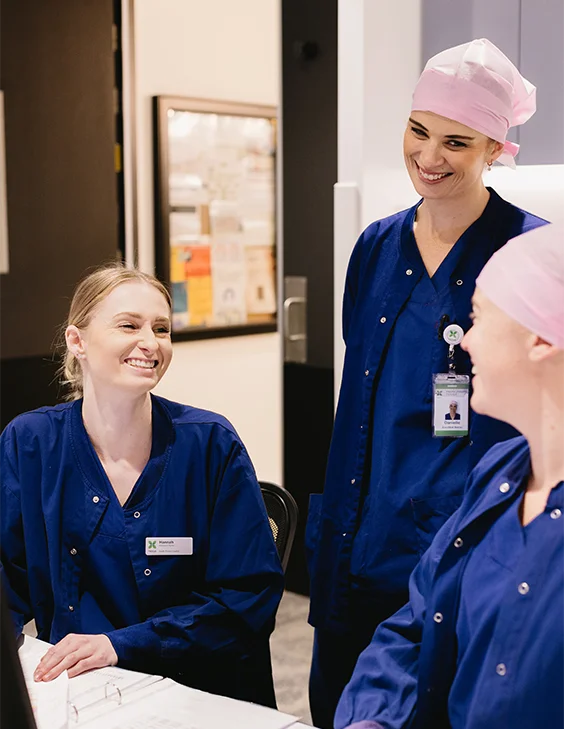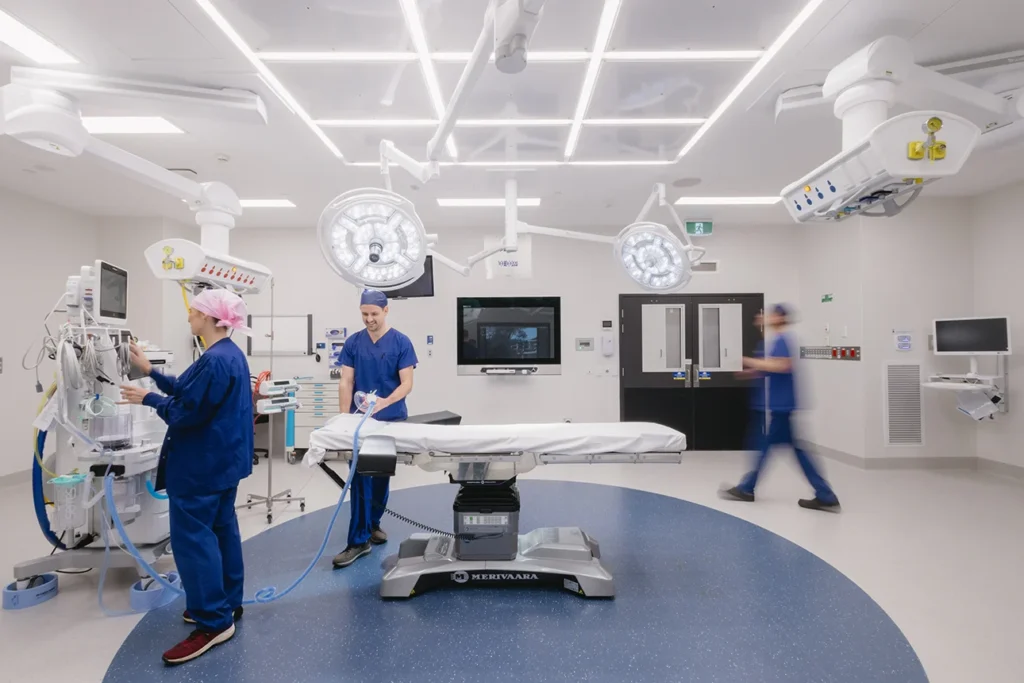Your Safety
Bunbury Day Hospital has several initiatives in place that prioritise your safety, health and comfort in the lead-up, during and after your procedure. Learn more about these initiatives below and why they require a partnership with our patients, consumers and providers as we work together to deliver safe, high-quality healthcare and the best possible patient outcomes.
Preventing Infections
Bunbury upholds the highest standards in hygiene and cleanliness through its infection prevention and control program. Our staff and Doctors follow best practice, routinely washing their hands:
- Before touching a patient
- Before a procedure
- After a procedure or body fluid exposure risk
- After touching a patient
- After touching a patient’s surrounds

We ask our patients to abide by the following recommendations to help prevent infection before and after surgery:
- Vigorously wash your hands for 15-20 seconds following close contact with bacteria or contaminated surfaces (e.g. changing a nappy, using the bathroom, taking out the rubbish, handling money or touching pets)
- Practice good respiratory hygiene and cough etiquette (cover your mouth and nose with a tissue when coughing or sneezing, discard the tissue in the bin and wash your hands immediately after)
- Immediately notify your Doctor if you notice any sign of infection including redness, swelling, pain, smell, or unusual ooze from the wound area or drip injection site
- Also notify our hospital if you have developed an infection
- Avoid smoking
- Carefully follow your Doctor’s post-operative care instructions
- Avoid close contact with people who are unwell
Preventing Blood Clots
Some patients are at increased risk of developing blood clots in their legs or lungs. The two different kinds of blood clots are:
- Deep vein thrombosis (DVT) occurs when a blood clot forms in a deep vein in the body, usually the legs or pelvis. Common symptoms include pain, swelling, redness and tenderness. Various risk factors can contribute to the development of DVT including surgery, trauma or bone fracture, extended bed rest or sitting for long periods.
- Pulmonary embolism (PE) occurs when a blood clot travels through the veins to a lung artery, suddenly blocking the blood flow. These blood clots often form elsewhere in the body such as the legs, pelvis, or abdomen. A major pulmonary embolism can be fatal if the blood clot blocks too many blood vessels in the lungs. It’s essential to be aware of the symptoms which include breathlessness, rapid breathing, chest pain, coughing, fainting, low blood pressure or an irregular heartbeat.
In our Online Health Assessment, you will be asked about your history and risk of developing blood clots. Your risk level will then be assessed by our hospital in consultation with your Doctor and Anaesthetist and preventative treatment may be instigated as and where appropriate.
Notify your Doctor immediately if you experience chest pain, tenderness or swelling in the legs, pelvis or abdomen, or feel breathless during your hospital stay or on discharge.
Preventing Slips and Falls
We understand falls are more likely to occur if you are unwell or following surgery. Poor balance, visual impairment, muscle weakness, unfamiliar surroundings, unsuitable footwear, inactivity and certain medications can put patients at greater risk of falling and injuring themselves.
Our nurses will regularly assess your well-being pre and post-surgery to determine, if at any time you’re at greater risk of falling. As part of this process we:
- Review all medications, especially those with greater side effects
- Monitor patients’ blood pressure
- Coordinate care plans for patients with limited mobility and on discharge

Follow the simple instructions below to reduce your likelihood of falling in hospital:
- Wear fitted, nonslip, low-heeled footwear
- Avoid walking in socks, surgical stockings or slippers
- Wear comfortable clothing that’s not too loose or long
- Take your time when mobilising and standing
- Notify the nurse if you are feeling unwell, or unsteady on your feet
- Wear your prescription glasses or visual aids (if applicable)
- Notify staff immediately if you notice any hazards or spills
- Know where your personal belongings are so you can access them safely (e.g. phone, water, prescription glasses etc.)
Questions About Your Care?
If you have any queries or concerns please do not hesitate to contact our experienced team at Bunbury Day Hospital. Your care is our highest priority.

